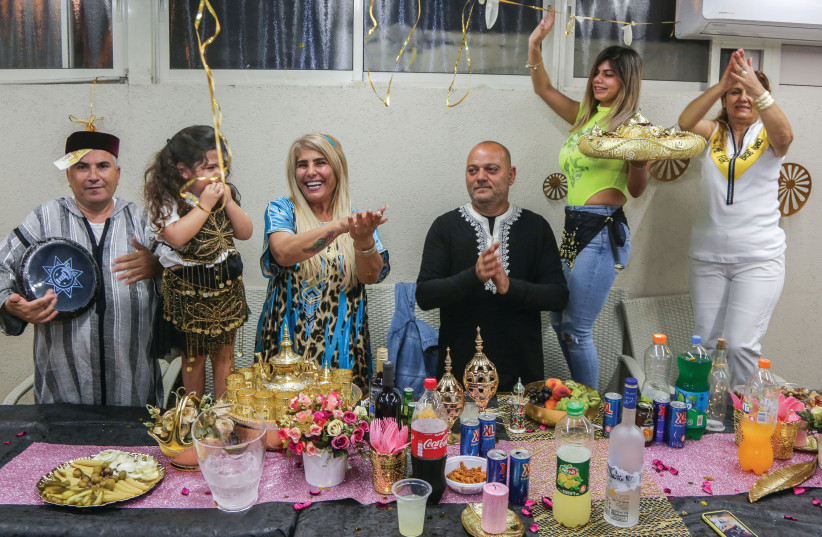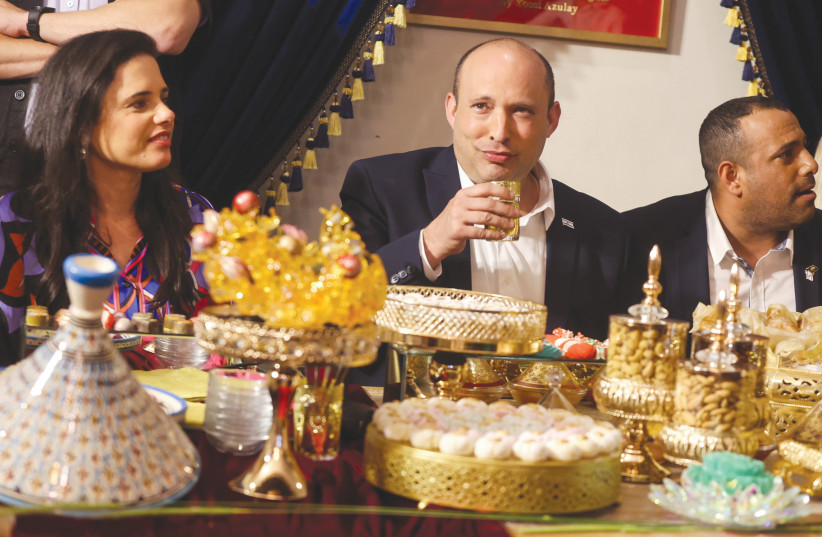In a statement on Monday, Jerusalem Chief Rabbi Shlomo Moshe Amar called on the public not to publicly celebrate Mimouna due to the war.
Mimouna is a holiday celebrated the day after the end of the Passover holiday and originates with North African Jews; this year, it will be celebrated on April 30.
The holiday quickly spread to other groups in Israel and is now celebrated across different heritage groups.

Celebrations often take the shape of open house parties with a wide variety of food; guests are expected to go from house to house, celebrating with each household, although this is less common in modern times.
Politicians quickly picked up on this and began attending and publicizing their attendance at Mimouna parties.

Rabbi Amar previously served as the Israeli Sephardi Chief Rabbi from 2003 to 2013, and shortly after finishing his term, became Chief Rabbi of Jerusalem in 2014.
"Since we are already past the holiday, it is not appropriate for us to celebrate in public with drums and dancing when so many of our brothers are hostages and wounded," he said in the message.
"We will dedicate this night to strengthening ourselves by studying books of faith and security. We will thank the Holy One, blessed be He, for all His graces, and ask for a speedy future redemption of the people of Israel."
A break with tradition
Rabbi Amar used to hold a public Mimouna event every year with rabbis and public figures, but this year, he canceled it.
A Walla report published on Sunday indicates that the top leadership of the country, who have traditionally been guests of honor at the celebrations of their activists and supporters throughout the country, are not expected to participate this year.
Speaker of the Knesset Amir Ohana, last year even held an open Mimouna event in the Knesset building for the first time, but this year does not intend to celebrate publicly.
The head of the opposition, Yair Lapid, the National Unity Party head, Benny Gantz, as well as the Yisrael Beytenu head, Avigdor Lieberman, are also not expected to celebrate this year.
"What is there to celebrate these days?" was the common response to the inquiries.
